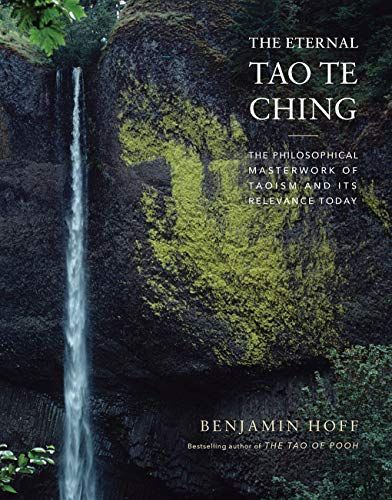
The Eternal Tao Te Ching The Philosophical Masterwork of Taoism and Its Relevance Today
From the bestselling author of The Tao of Pooh, a uniquely authentic translation of the enduring Tao Te Ching, based on the meanings of the ancient Chinese characters in use when the Taoist classic was written From Benjamin Hoff, the author of The Tao of Pooh and The Te of Piglet, which have sold millions of copies, comes a new translation of the Tao Te Ching. The original author (or authors, as Hoff makes the provocative claim that there may have been more than one) streamlined the folk religion of China down to its foundation and rebuilt it as a man-in-nature philosophy, incorporating his advanced spiritual, philosophical, social, and political ideas. Ever since its creation, the Tao Te Ching has stood alone among the world's writings. There was nothing like it before it appeared, and there is still nothing like it now. Unlike a good deal of Chinese writing, old and new, the Tao Te Ching makes no reference to specific individuals or events, whether of the then-past or then-present. It is not historical, nor classical; its world is the world of now. Laboring over the ancient text for seven years, Hoff tackled this project by following the same principles he learned while employed by a master restorer of valuable but damaged antique objects: Thoroughly research the history of the object; remove all misguided, historically incorrect alterations and repairs; patch and fill where necessary; match the new work to the old so seamlessly that no one will detect a difference in treatment; honor the materials and its design; and honor the tradition that has formed around the object over the years. This unique interpretation of the Tao Te Ching shows what is possible when a translator truly partners themselves with someone of another time, another place, and another language.